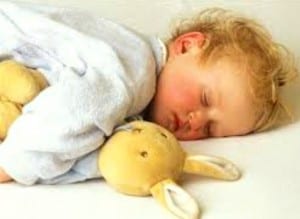
The researchers interviewed the parents of nearly 1,000 toddlers. The toddlers were part of a longitudinal study tracking the incidence, progression, and risk factors of mental health problems in children. The parents answered questions about their children’s sleep habits and psychiatric symptoms. The interview questions were based off of DSM-IV diagnostic criteria, which allowed the researchers to avoid vague questions like “Does your child have trouble sleeping?” Two years later, the researchers interviewed 800 of the parents again.
The correlation between sleep disorders and psychiatric symptoms is reciprocal, meaning that sleep disorders and psychiatric symptoms are both risk factors for each other. Four-year-olds with sleep disorders have an increased risk of developing psychiatric problems two years later compared to four-year-olds with typical sleep patterns. Four-year-olds with psychiatric symptoms have an increased risk of developing a sleep disorder two years later compared to four-year-olds without psychiatric symptoms.
The study highlights the importance of identifying and treating sleep and psychiatric disorders in young children. “Our research shows that it is important to identify children with sleep disorders, so that remedial measures can be taken. Sleeping badly or too little affects a child’s day-to-day functioning, but we are seeing that there are also long term repercussions,” said Silje Steinsbekk, study author and associate professor and psychologist at NTNU.
This research is published in the Journal of Developmental & Behavioral Pediatrics.
Previous news in sleep:



 © 2025 Unyte Health US Inc.
© 2025 Unyte Health US Inc.